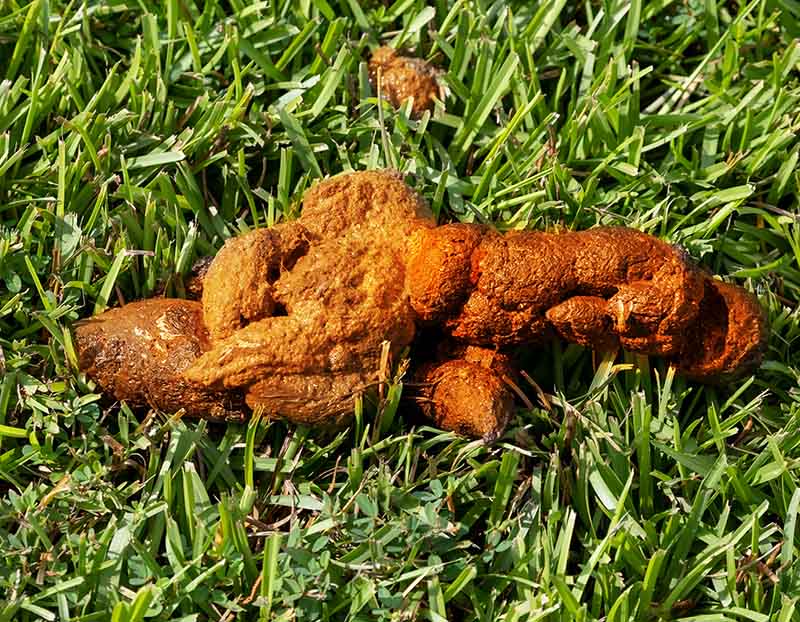Many dog owners find the presence of orange dog poop to be concerning, especially when it’s coupled with additional warning signs like diarrhea, vomiting, fever, or lethargic behavior.
But it’s important to keep in mind that a variety of factors can make a dog’s feces appear orange. This can range from eating carotene-rich fruits and vegetables to developing liver disease and other serious illnesses.
This article will provide all the information you require regarding this orange dog poop issue, including the answer to the question, “Why is my dog’s poop orange?” and whether or not it should cause you concern.
Why Is My Dog’s Poop Orange?
Your dog’s feces may be orange or slightly red for a variety of reasons. There are some indications that your dog may be experiencing health issues, but there are other possible causes that are less concerning. Here are a few of the most typical causes of orange dog poop.
When is Orange Dog Poop Not a Concern?
If your dog’s orange poop is uniform in color, of normal consistency, and doesn’t smell particularly bad, it’s probably nothing to worry about. This is supported even more if your dog only occasionally has orange dog poop and is otherwise in good health.

Orange food, more specifically orange pigments in food, is the only natural cause of orange dog poop. Orange poop can result from eating a lot of foods high in carotenoids. Foods that are orange or yellow, such as carrots, pumpkin, sweet potatoes, and some squash, frequently contain carotenoids. If a dog consumes enough of these foods, their feces will turn orange.
Other synthetic colorings in your dog’s food can also cause their feces to turn orange. If you recall the color wheel, red and yellow together make orange, so if your dog eats anything with red or yellow pigment, orange poop could result.
Dogs’ poop may also turn orange if they consume other orange-colored objects. Orange-colored items like crayons may also be the cause of your indiscriminate eater’s orange poop.
Just keep track of what your dog was eating when the orange poop appeared and be sure to note any additional symptoms. If your dog is otherwise healthy and the orange poop is of normal consistency, the problem is probably with the pigment. If the orange dog poop bothers you, gradually transition your dog to a food without artificial coloring and stop giving them treats with carotenoids.
2 Tips from the Vet To Understand If Your Dog’s Orange Poop is a Cause for Concern
Here are two things that you should pay attention to:
Let’s examine the potential causes of your dog’s orange poop right now.
Some possible causes of orange dog poop are:
FAQ
Why is my dog’s stool orange?
You should definitely discuss any orange or yellow dog poop with your veterinarian because it may indicate a biliary or liver problem. Yellow diarrhea in your dog may also be a sign that the food they are eating, such as rice or chicken, is making them sick.
How do you treat orange stool in dogs?
…
Aside from diet changes, vets will often recommend treatments like:
- Fiber supplements.
- Antibiotics.
- Probiotics.
- Vitamin injections.
What does orange poop indicate?
Orange stools are typically a result of insufficient bile production or absorption. Short-term diarrhea, clogged bile ducts, IBS, SBS, gallstones, inflammation, cysts, and tumors are among the health conditions associated with bile problems.
Is orange poop normal?
Orange is typically a harmless and transient color change in the stool, unlike some unusual stool colors that may indicate a potential health issue. Usually, certain foods or food additives are to blame for orange stools. Once they are digested, your stool should return to normal.
